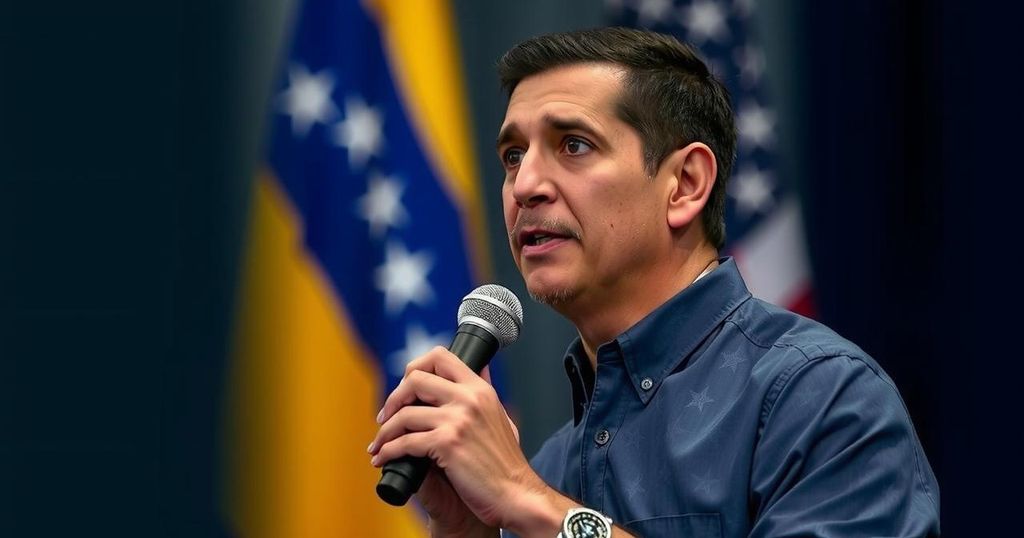Politics
ANTONY BLINKEN, BLINKEN, BRAZIL, CARTER CENTER, COLOMBIA, CUBA, DEMOCRACY, ELECTION, EUROPEAN UNION, GIL, GONZALEZ, NATIONAL ELECTORAL COUNCIL, NICOLAS MADURO, NORTH AMERICA, POLITICS, PRESIDENTIAL ELECTION 2024, SOUTH AMERICA, SUPREME TRIBUNAL OF JUSTICE, TRADE RELATIONS, UNITED NATIONS, VENEZUELA
Leila Ramsay
0 Comments
U.S. Recognizes Opposition Leader Edmundo Gonzalez as Venezuela’s President-Elect
The U.S. government designated opposition leader Edmundo Gonzalez as the “president-elect” of Venezuela, months after President Maduro claimed victory in the disputed July election. Gonzalez won the popular vote according to opposition data, despite Maduro’s National Electoral Council declaring him the winner with no transparency. International scrutiny of the election’s legitimacy continues, while Colombian President Petro changed his stance, labeling the election a “mistake.”
On Tuesday, the U.S. government formally recognized Venezuelan opposition leader Edmundo Gonzalez as the “president-elect” of Venezuela, months after President Nicolas Maduro proclaimed victory in the contested election held on July 28. Secretary of State Antony Blinken emphasized the need to respect the will of Venezuelan voters. While the Biden administration acknowledged that Gonzalez garnered the most votes, it previously refrained from officially declaring him president-elect. Following the closure of polls, Venezuela’s National Electoral Council, populated by loyalists to Maduro, hastily proclaimed him the victor without providing a comprehensive breakdown of the votes. However, opposition groups managed to retrieve data from 80% of electronic voting machines, arguing that Gonzalez had received double the votes of Maduro. In response to the U.S. recognition, Gonzalez stated, “We deeply appreciate the recognition of the sovereign will of all Venezuelans. This gesture honors the desire for change of our people.” After facing an arrest warrant in connection to the vote tally records, Gonzalez sought asylum in Spain. Maduro’s regime has dismissed calls from various international bodies, including the U.S. and the European Union, to present evidence supporting their electoral claims, leading to further scrutiny of the election’s integrity. Subsequent to the elections, the Cuban government urged Venezuela’s Supreme Court, which functions under the ruling party’s influence, to review the results, reaffirming Maduro’s victory amidst widespread doubt from observers, including the United Nations and the Carter Center. Additionally, Colombian President Gustavo Petro has publicly changed his stance on the election, labeling it a “mistake” while attending the G20 summit in Brazil. This reversal underscores the shifting sentiments among Latin American leaders regarding Maduro’s governance. As Venezuela prepares for the next presidential term commencing January 10, Maduro’s administration has been invited to a swearing-in ceremony, although skepticism regarding the legitimacy of his election continues to persist.
The political climate in Venezuela has been heavily polarized following the 2023 presidential election held on July 28. President Nicolas Maduro claimed victory amid widespread allegations of electoral malpractice and a lack of transparency. The country has faced international scrutiny, especially from the U.S. and Europe, regarding the credibility of its electoral processes. The National Electoral Council is viewed as biased towards the ruling party, leading opposition figures, including Edmundo Gonzalez, to challenge the results. With a backdrop of economic turmoil and human rights violations, Venezuela’s political landscape continues to attract attention from global leaders and international organizations, prompting calls for electoral reforms.
The recognition of Edmundo Gonzalez as Venezuela’s “president-elect” by the United States highlights the ongoing contention surrounding the legitimacy of the recent elections and President Maduro’s administration. With various nations questioning the transparency of Venezuela’s electoral process and calling for accountability, the political divide deepens. As the international community watches closely, the implications of this recognition on Venezuela’s future governance remain to be seen, particularly with an imminent presidential term set to begin.
Original Source: www.voanews.com




Post Comment